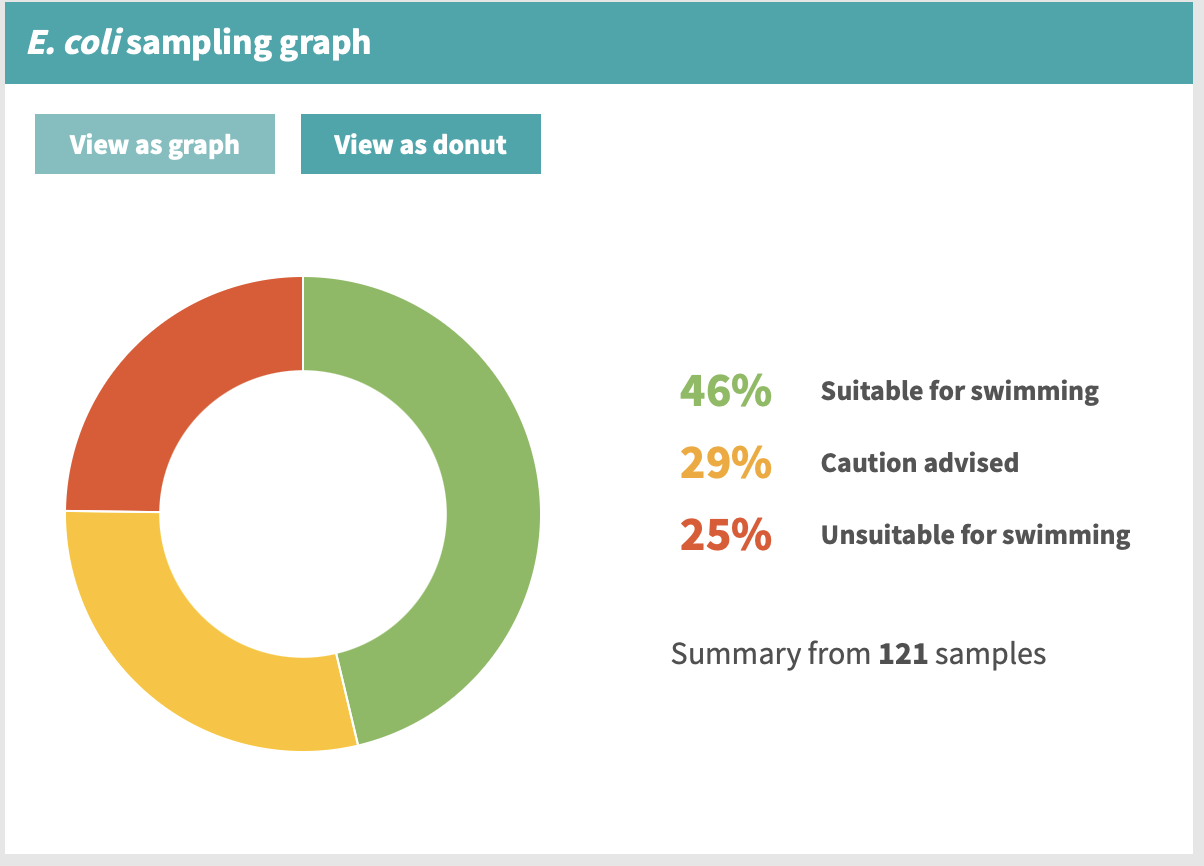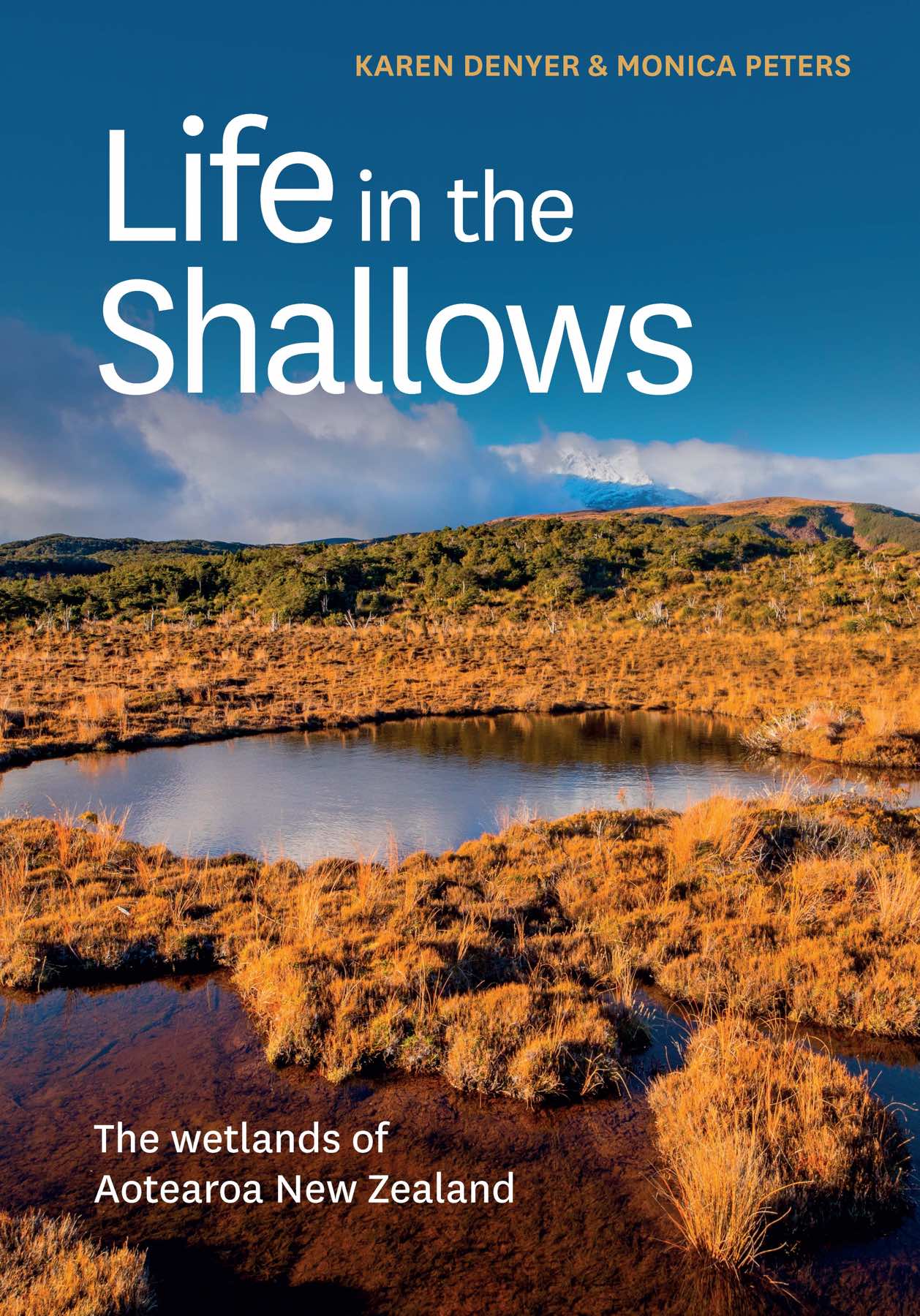E. Coli monitoring

Every summer from 1 November to 30 April Horizons Regional Council monitors the water at the Waikawa Beach footbridge for E. Coli, and just offshore for Enterococci. They also keep an eye out for potentially toxic algae (cyanobacteria).
While the water by the footbridge is suitable for swimming only 46% of the time (a historical average), we don't seem to have problems with toxic algae, and the sea is almost always fine for swimming.
That's why each week I publish the latest monitoring result for the footbridge. That appears on the front page of the Waikawa News site.
To visit the official LAWA site go to Land, Air, Water Aotearoa (LAWA) - Waikawa Estuary at Footbridge. Once there, if you scroll down and click on Why this status — The science and scroll down further you'll then see a graph that incorporates latest results. If you click to choose Samples this season — as a graph and hover over any dot you'll find the actual numerical value.
Personally I find this obscuring of data really frustrating, but my commentary to those responsible hasn't led to any change.
Useful information
The press release has some really useful info
- the team monitors the levels of faecal indicator bacteria and potentially toxic algae (cyanobacteria) in the water.
- Faecal contamination in water is measured by testing for E.coli at freshwater sites and Enterococci at coastal sites
- The presence of these bacteria in waterways suggests that other pathogens, that are harmful to humans, may also be present.
- Potentially toxic algae includes cyanobacteria which appears as black mats on rocks in rivers and as green scum in and above water in lakes. This algae can be toxic to dogs, as well as humans.
- Coming into contact with water where these organisms are present in sufficient quantities can lead to conditions such as gastroenteritis, respiratory illness, and ear and skin infections.
- If it has been raining heavily within the last 72 hours stay out of the water … The flow is often faster than usual and there can be high levels of faecal contamination which could make swimmers unwell.
- rivers and beaches can be unpredictable and deceptively powerful, so don’t enter the water alone, actively supervise children, and if you aren’t a confident swimmer stay out … check the water is clear and there’s no large debris around.
- in an emergency call 111.
- Horizons are in the process of updating signage at swim spots to highlight safe water practices.
- this summer Horizons will be asking people to provide feedback on the sites
Source: Press Release, 01 November 2022 — Summer swim spot monitoring gets underway - Horizons Regional Council.
In the 2021-22 year results were poor. According to the Traffic Lights System we saw 10 Red, 9 Orange and only 7 Green as at 27 April 2022.
E. Coli background
LAWA - Beach and freshwater recreation monitoring says:
When contaminated by human or animal faeces water can contain disease-causing bacteria, viruses and protozoa (such as salmonella, campylobacter or giardia). These organisms can pose a health risk in water that is used for recreational activities such as swimming. The most common illness is gastroenteritis but respiratory illness and ear and skin infections may also occur. …
The quality of water for swimming is determined by measuring ‘faecal indicator bacteria’ (enterococci in coastal waters and E. coli in rivers and lakes) which indicate the levels of disease causing organisms in the water.
LAWA - Faecal Indicators says:
E. coli (Escherichia coli) is a type of bacteria commonly found in the guts of warm-blooded mammals (including people) and birds. High E. coli concentrations in freshwater can be harmful to humans.
Common sources of E. coli bacteria are untreated human wastewater discharges, stormwater run-off and animal waste. Faecal concentrations are typically higher in pastoral streams but even near-pristine streams are not totally free from E. coli because of faecal deposition by birds and wild animals.

